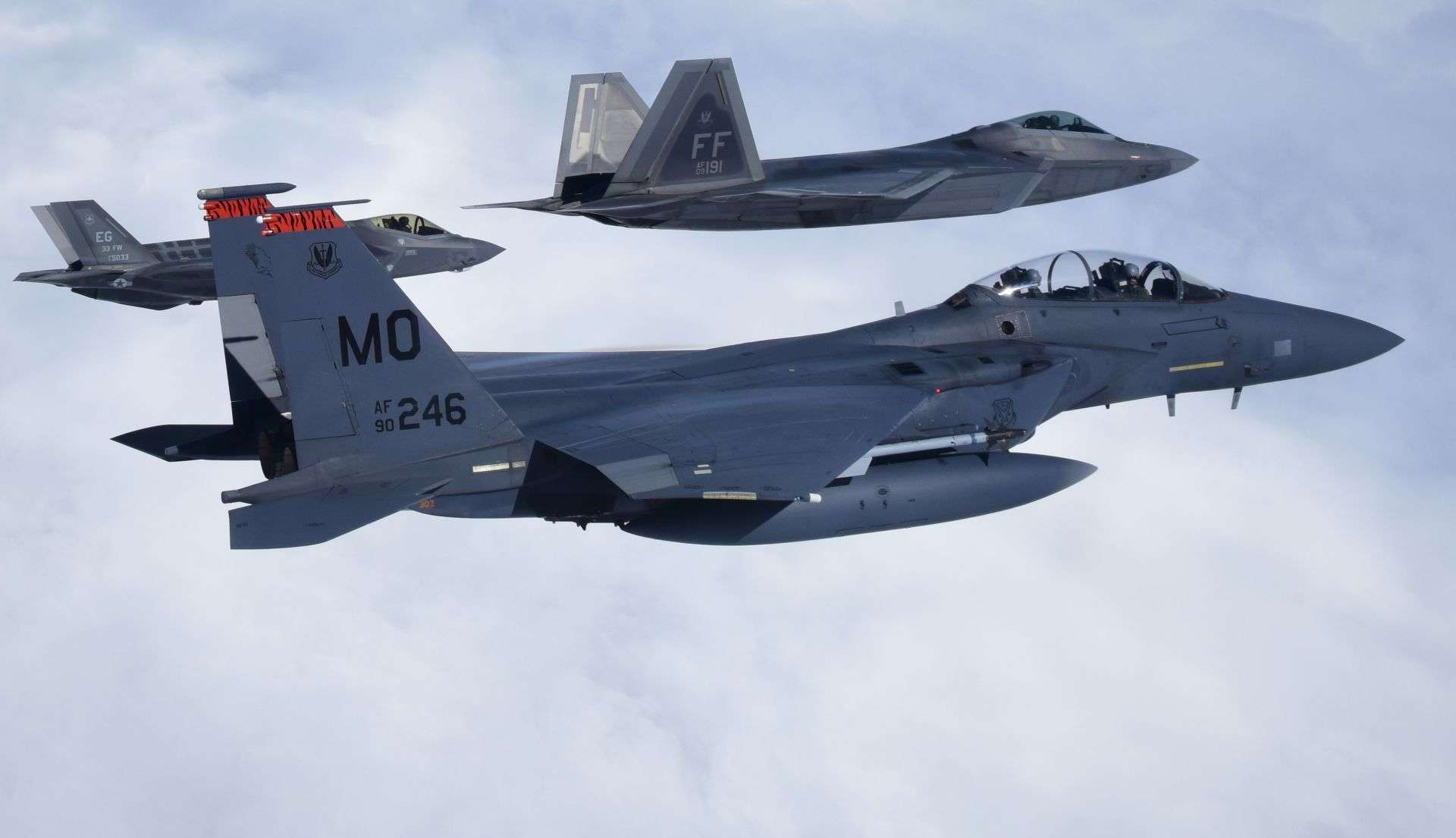“An American F-22 fighter actively prevented the Russian pair of Su-25 attack aircraft from carrying out a combat mission to destroy the Daesh stronghold in the suburbs of the city of Mayadin in the airspace over the western bank of the Euphrates River on November 23. The F-22 aircraft fired off heat flares and released brake shields with permanent maneuvering, imitating an air battle,” Major-General Igor Konashenkov, the Russian Defense Ministry’s spokesperson said on Saturday.
The Defense Ministry has commented on the US claims regarding Syria’s airspace, explaining that the majority of near-misses between US and Russian planes in Syria and in the area of the Euphrates were connected with the Washington’s attempts to hinder Daesh’s defeat.
“The statements of the US Army representatives that a part of the Syrian airspace belongs to the US is puzzling,” Konashenkov stated, reminding the Pentagon that “Syria is a sovereign state and a member of the United Nations, therefore, the United States does not own any part of sky.”
At the same time, he noted that “after the appearance of a Russian multifunctional super maneuverable Su-35S fighter, the American fighter stopped dangerous maneuvers and hurried to move into Iraqi airspace.”
The ministry’s representative has also noted that the US has failed to give any answer to the Russian command at the Khmeimim airbase in Syria “concerning this and many other incidents in the Syrian sky,” the general added.
US-Russia Possible Collision in Syrian Sky
The statement was made in the wake of The New York Times newspaper’s Friday’s report, citing US commanders as expressing their concern over a possible collision between Russian and US warplanes over Syria, which might take place because of alleged violations of the de-escalation deal by the Russian side a dozen times a day since the agreement had come into force.
“It’s become increasingly tough for our pilots to discern whether Russian pilots are deliberately testing or baiting us into reacting, or if these are just honest mistakes… The greatest concern is that we could shoot down a Russian aircraft because its actions are seen as a threat to our air or ground forces,” Lt. Col. Damien Pickart was quoted as saying by the media.
Col. Jeff Hogan, deputy commander of the air operations center at the Qatar base, told the newspaper that he had daily phone calls with Chief of the Russian General Staff Valery Gerasimov, but because of occasional misunderstandings, he had to make additional calls.
According to the newspaper, the military explained Moscow’s actions by the desire to entrench the positions of the Syrian army and cement its territorial acquisitions ahead of the peace talks aimed at ending the seven-year war.
The report was made in the wake of Putin’s Wednesday’s announcement, saying that that the Daesh terrorist group (banned in Russia) had been completely defeated on both banks of the Euphrates River in Syria, following a similar Gerasimov’s statement on the same day, declaring that the remaining terrorists had been defeated in Deir ez-Zor.
US-Russia Deconfliction Deal
The United States and Russia signed a bilateral memorandum of understanding to ensure flight safety during combat missions over Syria in October 2015, specifying that the deconfliction would be implemented in different ways, with the help of separate telephone lines for air and ground deconfliction, as well as face-to-face meetings.
In November 2017, the Russian Defense Ministry said that the planes of the US-led coalition were trying to impede the Russian Aerospace Forces’ operations in Syria’s Al Bukamal. However, the disagreements were later resolved and the sides agreed to fly on opposite sides of a 45-mile stretch of the Euphrates River to avoid collisions.
The US-led coalition of more than 70 members has been conducting airstrikes, ground-based and rocket-propelled artillery fire against Daesh in Syria and Iraq since 2014. These actions, however, were not authorized in Syria either by the government of President Bashar Assad or the UN Security Council.
Meanwhile, the Russian Aerospace Forces have been present in Syria since September 2015, following an official request from Assad. Since March 2016, following Vladimir Putin’s order to pull out the bulk of the forces from the country, Russia maintains a military presence in Syria to train and assist local troops.









